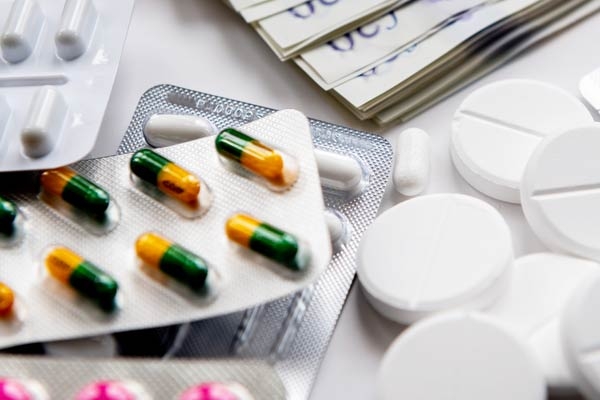
(Image source from: Canva.com)
India's pharmaceutical industry will witness a "tremendous transformation" in 2025 as technological advances such as artificial intelligence, machine learning and precision medicine revolutionize drug discovery, manufacturing and patient care, enabling innovation, enabling greater global reach and improving the quality of a drug is a key issue in this industry. The future of this industry, which is expected to almost double in size to around $130 billion by 2030, is on track to emerge as a lucrative industry that will help India play a crucial role in promoting the to play global health for all. The Indian pharmaceutical industry, which currently accounts for about 20% of total global generic drug sales, is focusing on excellence in research and innovation to position the country as a global hub for high-quality, affordable medicines Sudarshan Jain, General Secretary, Indian Pharmaceutical Association (IPA) , said: “India’s pharmaceutical market is expected to grow from the current $58 billion to $120-$130 billion by 2030. This will help the pharma sector realize its potential." He added that India will play a key role in advancing global health for all in the coming years due to favorable policies and its strong demographic and digital talent.
The IPA represents 23 of India's leading research-based pharmaceutical companies, including Sun Pharma, Cipla and Dr. Reddy's Laboratories. Innovation will continue to be a key focus of the industry, Jain said. He said the government would soon announce the operational details of the Research and Innovation Promotion Program to boost innovation. Elaborating on initiatives planned in the private sector, he said leading companies are increasing their focus on specialty collections and diversifying into high-value pharmaceuticals. “In addition, the industry will make advances in areas such as CAR T-cell therapy, mRNA vaccines and development of complex molecules, which have enormous potential for future growth,” Jain said. Additionally, patents on top-selling biologics will expire by 2025, he said, representing a significant growth path for the global biosimilars market.
Similarly, Anil Mathai, director general of the Organization of Pharmaceutical Manufacturers of India (OPPI), said the industry will witness a major transformation in 2025. Technological advances such as artificial intelligence, machine learning and precision medicine would revolutionize drug discovery, manufacturing and patient care, he said. said OPPI represents research-based pharmaceutical companies such as AstraZeneca, Novartis and Merck in India. In addition, a strengthened regulatory framework will enable the rapid introduction of innovative treatments while prioritizing patient safety, Matai said. He said, “By focusing on excellence in research and innovation, India will become a global hub for high-quality, cost-effective medicines. Policymakers, scientists and industry stakeholders will work together.” This will address medical needs, particularly in disadvantaged areas."
Matai also said that compliance with the Uniform Code of Pharmaceutical Marketing Practices (UCPMP) maintains ethical standards and promotes trust and transparency across the healthcare ecosystem. Reflecting on the past year, Mr. Jain said 2024 is the year to lay a strong foundation to promote sustainable growth, simplify regulations and align with global standards. The PLI (Production Linked Incentive) program is particularly suitable for setting up environmentally friendly projects for the production of penicillin G and clavulanic acid. Mr Matai announced the promulgation of the Patents (Amendment) Regulations 2024, exemptions from Phase 3 clinical trials for certain classes of medicines already in a well-regulated market and Europe's long-awaited Free Trade Agreement (TEPA). Membership of EFTA represents India's continued progress in creating a dynamic and competitive global pharmaceutical sector driven by innovation.
Commenting on the healthcare sector, Ashutosh Raghuvanshi, MD and CEO, Fortis Healthcare, said the hospital market will grow from nearly $99 billion in 2023 to around $194 billion in 2032. He said that was to be expected. This year was particularly important as hospitals became the main recipients of foreign direct investment in the healthcare sector. He added. Looking ahead, Raghuvanshi said the industry needs to focus on several key trends that will shape the future of healthcare in India. “The aging population is increasing the demand for specialized aged care, while a greater emphasis on prevention shifts our focus from simply treating disease to promoting health,” he said. He added: In addition, the integration of advanced technologies such as artificial intelligence, robotics and telemedicine will improve diagnostic accuracy and operational efficiency and ultimately improve patient outcomes.
Commenting on the medical device sector, Himanshu Vaid, MD, PolyMedicure said it is imperative for companies to increase investments in R&D and innovation to sustain the growth momentum. “The future belongs to those who can develop innovative technologies to meet the medical needs of a dynamic and diverse world, through initiatives such as new medical device programs and an enabling regulatory environment that provides the necessary foundations. Given that the market is expected to reach $50, he said the medical device industry growth story is well-positioned to expand through fiscal 2030. Collaborative Power Donor and Center for Health Care Promoter and Executive Director Amira Shah said the diagnostics industry is heading to a projected level of $25 billion by FY28, up from $13 billion in FY23, and that preventive health care is being driven by increasing awareness of the epidemic, aging populations and expanding insurance coverage.
However, the path forward requires a strategic focus on technology, access and collaboration, he added. Shah said the future of diagnostics lies in the adoption of technologies such as genomics, digitalization, artificial intelligence, machine learning and data analytics. “Consolidation through mergers and acquisitions is key to overcoming industry fragmentation, enabling companies to increase size, expand reach and ensure consistent quality,” he added.









